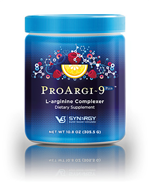 Addressing the One Critical Factor That Makes ALL the Difference for Enhanced Strength Training!
Addressing the One Critical Factor That Makes ALL the Difference for Enhanced Strength Training!
In Part 1 of Strength Training we discovered how little attention is paid to the health of your endothelial cells and their importance to athletic performance. It doesn’t surprise me because most physicians and health care professionals don’t even talk about this subject with their patients.
Yet this organ called the endothelium and all its endothelial cells play a critical role in the health of your cardiovascular system. Every component of athletic performance centers on the health of your endothelial cells and their ability to properly produce nitric oxide, the master signaling molecule of the cardiovascular system.
In Part 2 we’re going to look at sports science and strength training and why you need to pay attention to your endothelial cells and their ability to produce nitric oxide.
Sports Science and Strength Training!
Sports science has come a long way in helping all levels of athletes improve their strength training. From teaching us the importance of developing your core muscles which provide a stable base for all your movements; to different strength training programs which improve muscle strength, tone, and endurance allowing you to stave off muscle fatigue and help to limit injury; to the importance of proper nutrition to both fuel and repair. Yet, there is still one factor that most leave out and that is the health of your endothelial cells and their ability to produce nitric oxide (NO).
According to Darryn Willoughby, PhD, CSCS, FISSN at Baylor University:
“Arginine has been well researched and has many beneficial effects, especially in terms of cardiovascular health. Its main mechanism of action lies in boosting NO. NO is a signaling molecule within muscle cells that may have many anabolic effects, including increased nutrient transport and vasodilation. Arginine boosts nitric oxide by stimulating nitric oxide synthase, the enzyme that makes NO. Research suggests it may help improve exercise performance, support protein synthesis, boost growth hormone levels at higher doses, and even help replenish postworkout glycogen stores.”
What Dr. Willoughby is pointing out is that nitric oxide plays a significant role in all phases of strength training. And, the organ of the body that is key to producing it is your endothelial cells that make up your endothelium. It is foundational to the cardiovascular system’s ability to deliver the necessary oxygen and nutrients needed for muscular contraction and relaxation. Additionally, that same cardiovascular system is needed to remove the waste products created during energy production so that the muscle and organ systems can work optimally or as close to optimally as possible.
Many serious strength training athletes spend a lot of time, money, and effort on training, nutrition, and equipment. Equally important is spending time making sure your endothelial cells are properly repaired and supplied with the amino acids they need for improved nitric oxide production.
Why Pay Attention to the Endothelial Cells and Nitric Oxide Production for Strength Training?
As promised I’m going to open your eyes and mind to information that can take you to a whole n ew level of strength training. But first a little background.
ew level of strength training. But first a little background.
Your endothelium is a thin layer of cells that line the interior surface of your entire cardiovascular system including your heart. These cells are called the endothelial cells. When added up, the volume of these endothelial cells would cover the surface area of 8 tennis courts and weigh as much as the liver. That’s amazing since the endothelium is only one cell thick and can’t be seen by the human eye.
Once thought to be just an inert membrane, research over the last 25 years has shown that the endothelium is an active, multi-functional organ that plays a vital role in metabolic, immunologic, and cardiovascular health. Most researchers today would tell you that your endothelial cells ultimately determine the health of your blood vessels. It’s these blood vessels that are delivering the needed oxygen and nutrients for your athletic performance as well as removing the waste products that help determine the speed of your recovery. All key to strength training.
One critical function of the endothelial cells is facilitating the formation of new capillaries. While this is important in wound healing, it also plays a significant role in muscle creation and in the heart’s ability to develop collateral vessels to improve delivery of oxygen and nutrients. This collateral vessel formation is also key to improving your ability to fuel your muscles with oxygen and nutrients as well as effectively removing waste products.
Another critical function of the endothelial cells is the production of nitric oxide. Nitric oxide is the master signaling molecule of the cardiovascular system. It regulates the muscle tone of your blood vessels allowing them to dilate for improved blood flow into the working muscles, tissues, and organs. Nitric oxide stops blood platelet cells from grouping together to enhance blood flow. Nitric oxide transmits messages between nerve cells. Nitric oxide is associated with the process of learning and memory for improved cognitive function so that your head is clear and focused in the gym. According to Dr. Jonathan S. Stamler – Professor of Medicine at Duke University Medical Center:
“It does everything, everywhere. You cannot name a major cellular response or physiological effect in which [nitric oxide] is not implicated today. It’s involved in complex behavioral changes in the brain, airway relaxation, beating of the heart, dilation of blood vessels, regulation of intestinal movements, function of blood cells, the immune system, even how fingers and arms move.”
From airway relaxation for improved lung function to dilation of the blood vessels for improved delivery of oxygen and nutrients to the muscles, tissues, and organs, nitric oxide plays a critical role in strength training.
In Part 3 we are going to examine how your endothelial cells and their ability to properly produce nitric oxide impacts your training, performance, and recovery in strength training. This final part will help you understand how you can experience substantial and significant improvements in your overall strength and fitness; but only if you nourish your endothelial cells properly.
Together we can work to save a million lives!
Dan Hammer
Dan Hammer has a background in biology, chemistry, and exercise physiology. He used to run one of the largest health club operations in the Chicagoland area and has been helping people with their wellness issues for more than 25 years.



